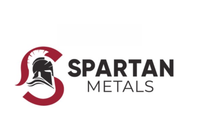BHP to Say Goodbye to Businesses Worth US$16 Billion in Spin Off
The move is aimed at allowing BHP to focus on the “four pillars” of iron ore, copper, coal and petroleum.
Diversified commodities giant BHP Billiton (ASX:BHP,NYSE:BHP,LSE:BLT) is saying goodbye to businesses worth an estimated US$16 billion, it said today in its full-year financial results release.
The company will be spinning off the businesses, most of which it acquired in its 2001 merger with Billiton, into an as-yet-unnamed company that will be listed in Australia, with a secondary listing in South Africa. Graham Kerr, currently CFO at BHP, will be its CEO. Analysts estimate that it could be worth $15 to $17 billion.
Included in the new venture will be BHP’s aluminum and manganese businesses, along with its Australian metallurgical coal assets and South African thermal coal operations; they’ll be joined by individual assets such as the Colombia-based Cerro Matoso nickel project and Cannington zinc–lead–silver mine. Nickel West, the company’s Australian nickel division, will not be included as the company hopes to sell it separately.
Commenting on the breakdown, Andrew Mackenzie, BHP’s chief executive, said the assets “will be more valuable in a purpose-built, independent company than they would be in BHP Billiton,” as per the Financial Times. Analysts seem similarly optimistic — for one, CSLA’s David Radclyffe told Reuters, “[i]t’s probably a better asset mix than we thought it would be beforehand. BHP has added Cerro Matoso, which is a better nickel asset than its Nickel West division, and Illawara Coal.”
For its part, BHP will now be focused on the “four pillars” of iron ore, copper, coal and petroleum, with potash being a potential fifth pillar. Mackenzie believes that as a result the company’s cash flow and return on investment will be stronger. The Wall Street Journal also quotes him as saying that BHP will make “no attempt to retain control” of the spin off, nor will it take an equity stake in it.
Shareholder dissent
BHP’s demerger sounds pretty promising thus far, but that doesn’t mean there hasn’t been some dissent among shareholders.
Chief among their complaints, according to the Financial Times, is the fact that the spin off will see “owners of BHP’s PLC shares … be given stock in the new vehicle, even though it will be listed in Australia and South Africa.” That’s a problem because many shareholders in the UK are subject to investment mandates that don’t allow them to own overseas companies.
One solution to that problem would be a share buyback, but as yet BHP hasn’t announced one. Happily, there’s some hope that one will take place in the future. Albert Minassian of Investec in London told Reuters, “[s]ome people may be disappointed because nothing was announced on a special dividend or buyback. But if you already have big news about a spin-off there is no point announcing the two together. You keep something for the next time. The money is still there.”
A global trend
As mentioned, BHP’s spin off essentially undoes its merger with Billiton a decade ago. While that might sound counterintuitive, market watchers have been quick to point out that BHP’s move is not exactly a surprise — indeed, other major miners such as Rio Tinto (ASX:RIO,NYSE:RIO,LSE:RIO) have also been slimming down their asset portfolios of late.
Investors will have to wait and see whether the trend will continue. If it does, it could mean more opportunities to invest in companies whose goal is to create shareholder value not through diversification, but by having a specific focus.
Securities Disclosure: I, Charlotte McLeod, hold no direct investment interest in any company mentioned in this article.

